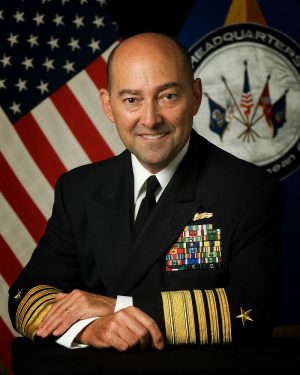
For decades, Haiti has struggled to avoid tumbling into deeply challenging conditions. It has been repeatedly beset by poor leadership, dictatorships and natural disasters like hurricanes and earthquakes, which are often followed by outbreaks of disease.
Today, the nation of more than 11 million people seems to have reached a nadir. After the assassination of the president in 2021, civil order has essentially been neutered. The shaky parliament is no match for the nation's large, heavily armed gangs. Kidnapping, rape, murder and drug dealing have soared, with crime rates doubling in a year. Port-au-Prince, the capital, is among the most dangerous cities in the Americas. Tragically, all this is occurring in a nation that is the second-oldest free republic in the hemisphere (having won its independence from France in 1804).
As the security situation continues to deteriorate, many international observers are calling for a new United Nations stabilization and security mission, similar to the one in place from 2004 to 2017. Is it time to send the blue helmets back to Haiti?
I know Haiti well. As commander of U.S. Southern Command from 2006 to 2009, I visited often and studied the history, culture and language of the nation, which is the poorest in the Americas and among the least affluent in the world. Nearly 60% live in abject poverty, including 4 million children. I speak French, and learned a bit of the official language, Creole. Haitians told me then that they were grateful for our assistance and engagement — or at least, they were initially.
In my many visits, I spent significant time with the UN mission leaders. Known as the UN Stabilization Mission in Haiti (MINUSTAH), it was composed of roughly 5,000 UN forces, half military and half police. The military component was mostly Brazilian, and typically a Brazilian Army 3-star general was the overall commander. Chile was also a major contributor, as were Argentina and several other South American nations. Soldiers from Bangladesh, Nepal and Sri Lanka also provided major contingents. Many police officers from India and Pakistan were also engaged. In total, more than 50 nations participated (roughly the number who sent troops to Afghanistan). Of note, the US — which was of course deeply committed in Afghanistan and Iraq throughout the period of the mandate — did not contribute significant forces.
On the positive side of the ledger, the UN troops brought a modicum of stability to Haitian society, reducing violence and increasing access to food and school. But sadly, the mission earned a mixed reputation in Haiti. One critical reason was a severe outbreak of cholera — which killed tens of thousands of Haitians — that has been credibly traced to the water systems installed to support the UN troops. There were also multiple reports of criminal acts by the UN troops, including raids, rape, kidnapping, illegal detention and extrajudicial executions.
I remember the Brazilian 3-star general Carlos dos Santos Cruz telling me how challenging it was operating with so many nations in the UN mission, and that the deep underlying poverty of Haitian society made it difficult to create longer-term stability. Later, when I went on to command the UN mission in Afghanistan, I gained a better appreciation of the challenges he faced during those years. These are large, complex missions conducted under extreme duress.
Yet letting Haiti continue to drift into gang-run anarchy is not a viable solution. Nor does Haiti currently possess the capacity to overcome its challenges without outside intervention.
A new UN mission, using the extensive lessons learned from the first MINUSTAH experience, seems necessary. Obviously, this must be done with the permission of the current government, and the best approach would be to constitute the force as much as possible from the Americas.
By partnering with the Organization of American States, the UN could provide regional command and control as it did in MINUSTAH. This time, given that the demands of Afghanistan and Iraq are gone, US engagement — even leadership — is mandatory. We should remember the Haitian refugees who came to the US in the 1980s on boatlifts, who ultimately numbered more than a hundred thousand. The US has a strong interest in a stable Haiti with reasonable internal security and a shot at economic development.
The new mission should probably be scaled at roughly 5,000 personnel, divided between military and law enforcement. Their headquarters and bivouacs will have to be scrupulously constructed and maintained to avoid any hint of repeating the cholera experience. The lessons of the first mission should be incorporated into their charter, as well as what the international community has learned subsequently in Afghanistan (where the Provincial Reconstruction Teams offer some ideas worth considering).
There is no quick or easy fix to the challenges facing Haiti. But it is a neighbor in desperate need, and if the US can lead an improved UN mission — this time with US personnel — it would be in our interests to help Haiti get back on its feet.
(COMMENT, BELOW)
Stavridis is a Bloomberg columnist. He is a retired U.S. Navy admiral and former supreme allied commander of NATO, and dean emeritus of the Fletcher School of Law and Diplomacy at Tufts University. He is also an operating executive consultant at the Carlyle Group and chairs the board of counselors at McLarty Associates.
Previously:
• 08/16/23 To stop Iran's threat to Gulf ships, send the Marines
• 07/28/23 NATO convoys can protect Ukraine's grain harvest from Putin
• 07/28/23 Sweden and Finland give NATO an Arctic opportunity
• 07/11/23 US military's recruiting woes are a national-security crisis
• 06/02/23 Ukraine war may become a proving ground for AI
• 05/16/23 Iran's tanker seizures may bring U.S. convoys back to the Gulf
• 05/08/23 Sudan rescue mission is helping the US Navy prepare for war
• 05/01/23 Ukraine is running out of ammo. So is the US
• 03/10/23 The US military must create a Cyber Force
• 12/07/23 Putin will carpet-bomb Ukraine unless the West acts
• 10/14/22 Putin's campaign of terror from the air is already failing
• 09/08/22 Iran reveals how its naval warfare is changing
• 08/02/22 US needs a global alliance against Russia's cyberattacks
• 06/28/22What to expect from NATO's new strategic concept
• 04/13/22 Nukes? Ukraine war's most potent weapon may be a cell phone
• 01/18/22 Russia is pushing Finland and Sweden toward NATO
• 10/20/21 What Colin Powell taught me about war and optimism
• 09/14/21 Why the U.S. Navy is hunting pirates off Africa
• 07/29/21 Cuba and how Biden can avoid another Mariel boatlift
• 07/01/21 Donald Rumsfeld never gave in
• 02/16/21 Keeping troops in Afghanistan makes America safer
• 08/19/20 Military reasons to celebrate the Israel-UAE deal
• 07/02/20 Taliban bounties would be a new low even for Putin
• 01/02/20 May the 'Space Force' be with you
• 08/02/19 What Iran will do next, and how to stop it
• 05/06/19 The 'Five Eyes' intelligence-sharing alliance should expand, starting with Israel and Japan
• 04/24/19 Sri Lanka attacks mark the birth of terrorism 3.0
• 01/14/19 Iran's tiny navy is trying to revive the Persian Empire
• 06/04/18 US was right to give China's navy the boot
• 06/04/18 Big winner of Colombia's election is the US
• 05/17/18 Great power politics is back as U.S. aims at Russia with resurrected Navy fleet
• 03/20/18 Fake advice for Putin's fake win


 Contact The Editor
Contact The Editor
 Articles By This Author
Articles By This Author